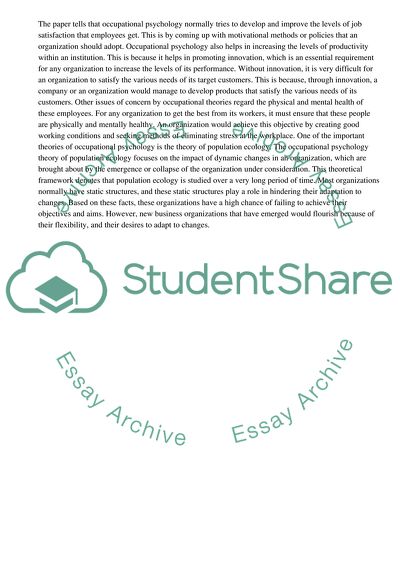Cite this document
(“Contribution of Occupational Psychology Theories in the Management Essay”, n.d.)
Contribution of Occupational Psychology Theories in the Management Essay. Retrieved from https://studentshare.org/management/1675669-critically-evaluate-the-contribution-of-occupational-psychology-theories-in-the-formation-and-management-of-innovative-teams-in-contemporary-organizations
Contribution of Occupational Psychology Theories in the Management Essay. Retrieved from https://studentshare.org/management/1675669-critically-evaluate-the-contribution-of-occupational-psychology-theories-in-the-formation-and-management-of-innovative-teams-in-contemporary-organizations
(Contribution of Occupational Psychology Theories in the Management Essay)
Contribution of Occupational Psychology Theories in the Management Essay. https://studentshare.org/management/1675669-critically-evaluate-the-contribution-of-occupational-psychology-theories-in-the-formation-and-management-of-innovative-teams-in-contemporary-organizations.
Contribution of Occupational Psychology Theories in the Management Essay. https://studentshare.org/management/1675669-critically-evaluate-the-contribution-of-occupational-psychology-theories-in-the-formation-and-management-of-innovative-teams-in-contemporary-organizations.
“Contribution of Occupational Psychology Theories in the Management Essay”, n.d. https://studentshare.org/management/1675669-critically-evaluate-the-contribution-of-occupational-psychology-theories-in-the-formation-and-management-of-innovative-teams-in-contemporary-organizations.


